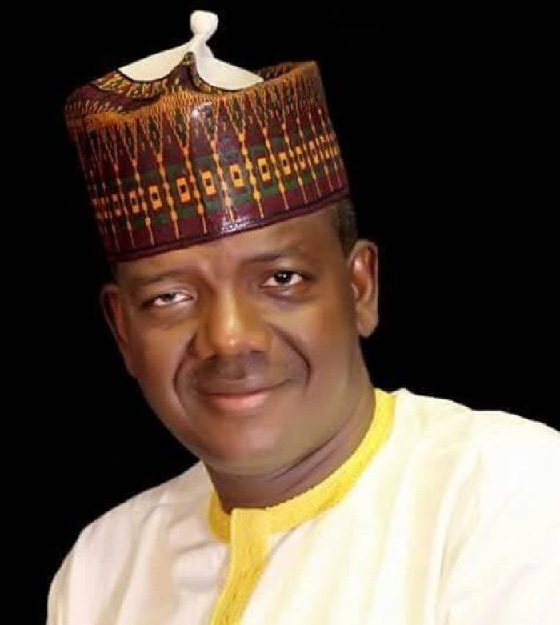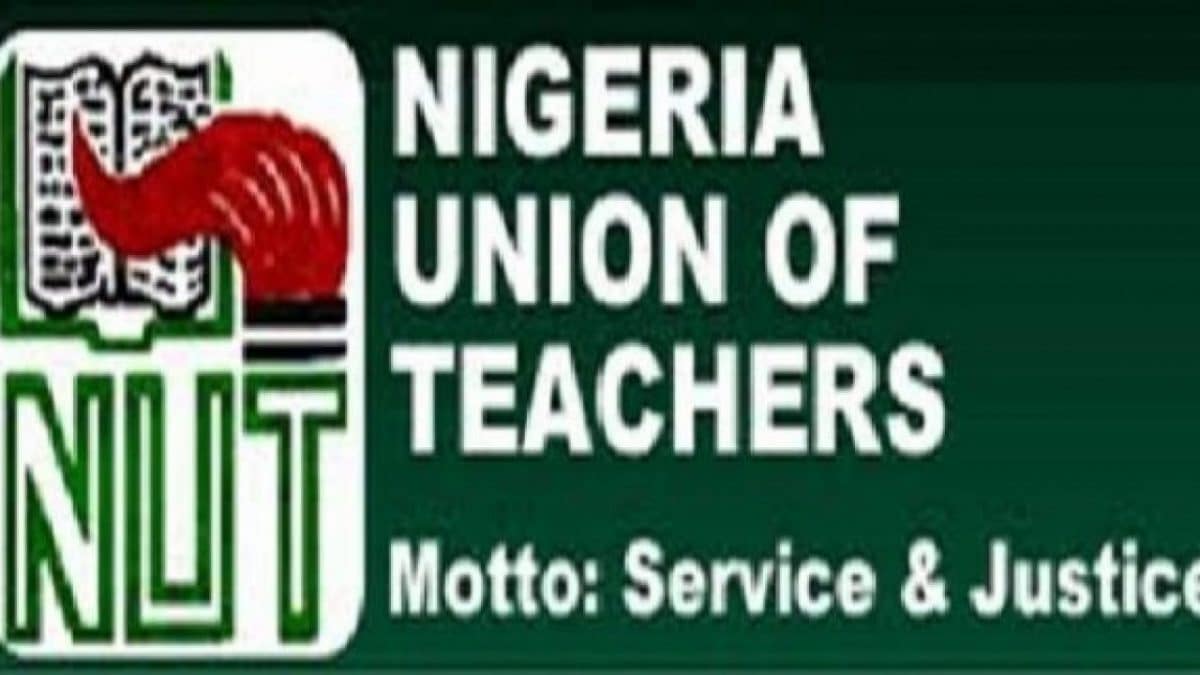Education
Zamfara Flags-off Back-to-School Campaign

The Zamfara State government, in collaboration with Global Partnership for Education (GPE) and UNICEF, flagged off a Back-to-School and school safety campaign in Gusau yesterday.
The campaign brings to an end the closure of schools in the state because of insecurity and the outbreak of COVID-19.
The campaign flag-off was organised by the Ministry of Education in collaboration with the State Universal Basic Education Board (SUBEB) and UNICEF Nigeria.
GPE and UNICEF are supporting Gender Responsive and Inclusive Enrolment Drive for Back-to-School campaign and Safe School Re-opening in Maradun and Kaura-Namoda Local Government Areas of the state.
Permanent Secretary, Ministry of Education, Alhaji Kabiru Sani, flagged off the campaign on behalf of Gov.
Bello Matawalle.He said the closure of schools was one of the major setbacks to educational programmes in the state.
He said the outbreak of COVID-19 and insecurity disturbed the political, social, economic, religious and financial structures of the state.
“We are all aware of the negative effects that COVID-19 has caused to the education of our children in Zamfara.
“It is in the light of this that we are gathered here today to appreciate the GPE, the Federal Ministry of Education and UNICEF for bringing this laudable intervention to Zamfara.
“It is disturbing, however, that after the COVID-19 lockdown had ended and insecurity issues had abated, children were still not attending school,” Sani said.
UNICEF consultant, Dr Ahmad Hashim, described the flag-off as timely, adding that UNICEF had been supporting Zamfara over the years, especially in the area of girl child education.
“We have been providing financial and technical support to the state; we trained more than 10,000 teachers.
“Millions of naira had been spent by UNICEF as cash transfer to vulnerable children in the state aimed at reducing number of out-of-school children.
“Before our intervention, Zamfara had more than 500,000 out-of-school children, but with government’s efforts and support from partners such as UNICEF, the number has reduced to 300,000,” Hashim said.
He commended Gov. Matawalle for providing counterpart funding to UNICEF.
The News Agency of Nigeria (NAN) reports that various speakers at the event expressed the need for government and all stakeholders to initiate measures to ensure safe return of students to school in the state. (NAN)
Education
UNICAL VC Promises to Resolve Dentistry Students’ Crisis

From Ene Asuquo, Calabar
The Vice Chancellor of the University of Calabar, Prof. Florence Obi has promised that she would do everything humanly possible to ensure that the ongoing crisis in the institution’s Department of Dentistry, is resolved.
Prof.
Obi made the promise in Calabar during a press briefing, stressing that she will resolve the crisis before leaving office.She explained that the problem predates her administration, and pledged to intensify efforts to rectify the crisis.
She added that the crisis was as a result of the Medical and Dental Council of Nigeria (MDCN)’s refusal to induct 2016 Dentistry students of the institution.She also debunked claims circulating on social media that the institution’s Dentistry programme has lost its accreditation, describing the reports as “misinformation and distortion of facts,” clarifying that the programme remains fully accredited and no students have been directed to transfer to other universities.
“At no point did the University ask Dentistry students to seek transfers to other institutions, nor were they advised to ‘go and learn a trade’ as falsely alleged online,” the VC stated.
“I will feel very bad if I leave without solving this problem and the students are left hanging without knowing their fate. I won’t be fulfilled,” she said.
She reaffirmed the University’s commitment to ensuring all Dentistry students graduate and are duly licensed as dental surgeons.
She noted that the Dentistry programme commenced in the 2013/2014 academic session, and in November 2019, the University secured pre-clinical accreditation from the MDCN and full clinical accreditation was subsequently granted in December 2022.
The VC added that the university’s synergy and partnership with the Minister of Education and the Tertiary Education Trust Fund (TETFund) to upgrade its facilities.
“All we asked for is time to engage with other institutions, update the Medical and Dental Council of Nigeria (MDCN), and follow through on due processes,” she noted.
Speaking further, Obi said that some of the affected students demanded to be transferred to the Department of Medicine and Surgery but said it was not the solution as the department was already saturated.
She urged the affected students to remain calm, noting that the university was doing everything possible to resolve the issues before the end of her tenure.
Education
NUT Reaffirms Commitment to Teachers’ Professional Development in Kwara

From Abdullahi Abubakar, Ilorin
The Nigeria Union of Teachers (NUT), Kwara State Wing has restated its commitment to strengthening the professional growth of teachers across the State, to enhance the quality of education delivered in public schools. Speaking at the opening of a three-day capacity-building workshop in Ilorin, the State Chairman of the Union, Comrade Yusuf Wahab Agboola, noted that continuous training of teachers remains a vital component of educational reform and improved classroom delivery.
The training, organised in collaboration with the NUT National Secretariat, is targeted at selected teachers and focuses on the “Study Circle Conveners’ Model”—a grassroots strategy for enhancing peer-to-peer learning and participatory leadership within the education sector.
Comrade Agboola explained that the workshop aims to equip teachers with practical skills in collaborative learning, peer engagement, and innovative teaching practices. He expressed optimism that the training would promote professional bonding among teachers and foster collective solutions to challenges facing the education sector.Also speaking at the event, the National Coordinator of the NUT Study Circle Project, Comrade Solomon Igbelowowa, traced the initiative’s roots to 1985 when it was introduced in Nigeria by the Swedish Teachers Association, having recorded success in Sweden and other parts of the world. He commended the Nigerian Union of Teachers for sustaining the project over the years and urged participants to engage fully and make the most of the training opportunity.
The workshop was officially declared open by the National President of the NUT, Audu Amba, who was represented by the 3rd National Vice President, Bashir Oyewo.
He encouraged teachers to approach the sessions with dedication and punctuality.
Education
JAMB Sets 150 Cut-off Mark for University Admissions

By Tony Obiechina Abuja
The Joint Admissions and Matriculation Board (JAMB) has fixed 150 as the minimum cut-off mark for admission into Nigerian universities for the 2025/2026 academic session.
The decision was reached on Tuesday during the 2025 Policy Meeting on Admissions, held at the Bola Ahmed Tinubu International Conference Centre in Abuja, with stakeholders from various tertiary institutions in attendance.
According to JAMB, 140 was approved as the minimum score for colleges of nursing sciences, while polytechnics, colleges of education, and colleges of agriculture will admit candidates with a minimum score of 100.
“The minimum admissible scores for admissions for the next academic session have been fixed at 150 for universities, 100 for polytechnics, 100 for colleges of education, and 140 for colleges of nursing sciences by the stakeholders (Heads of Tertiary Institutions),” JAMB announced via its official X account.





















